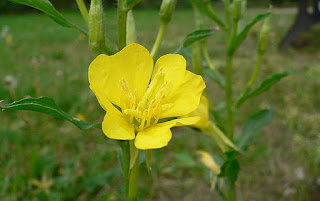Kurdish and Middle Eastern Progress 4 April 2016
In most recent years there has been tremendous violence towards
Kurdish and Middle Eastern people, especially women. A lot of the
people who have suffered such violence are recorded statistically as Iraqi, Iranian,
Syrian, or Kurdish people. The violence is brutal and people have been torn
away from loved ones either killed or lost during the civil unrest - innocent
civilians battling sexual violence and combative violence from military or
paramilitary forces.
Since the 1970s up to 2005 and even now, the region (previously
known as) Kurdistan has been plagued by occupation and war-mongering.
Peace in the Kurdistan region can
be achieved with the
proper political measures [for peace] and resilience against unruly occupation.
Encouraging political leaders with the attitude of restoring
justice and peace, means seeking social rectitude for war crimes and penance
against the atrocities which have taken place. The nature of society and
a ruling government, spells-out justice is a real requirement for socio-economic
improvement.
Kurdistan people have reached a point where suffering under an
autocratic and unruly regime has been normal for many years however this
normality is not a feature which must be allowed to continue in politics,
government or Middle Eastern national rule. Autocratic,
anti-Jewish, or anti-Kurdish attitudes are disingenuous to national leadership,
which is supposed to be fully fair and representational of all peoples in a
country.
Millions have suffered in the Middle East over the last 15 years
or so of war, and the backlash has been subsequent violent groups spawning and
hitting countries far away from this area because of spewed hatred for the West
and the religion of Islam. Hate begets hate in this circumstance
whichever way it is shown.
Hatred, violence, and unjust occupation, is the ‘mela’ of
international wrongs currently happening, because the level of historical,
sociological and political complexity is not seen; which has led to the meld of
fighting groups and insurgents, creating chaos in the most recognised Holy area
in the world today, the Middle East.
The most positive feat we can achieve is finding the reasons for
hatred and prejudice, and fighting the causes of violence by making peaceful
compromise and opening peace negotiations; to end violence or threats from
radical groups and people in political or financial support of such misguided
action.
Despite the broad range of differences within the Middle Eastern
governments, ideologies and corrective measures can fall in line, if people are
shown the eye-opening reality of Equality.
Kurdish people and other peoples from different areas around
Iran, Turkey and Syria quite rightfully obtain their own cultures and
religions, which is no abhorrent trend in humanity or national community, but merely the truth, beauty, and
pleasure to life and living. It is the truth of the Middle East.
Islam, Judaism, Christianity and other religions exist and
through the eyes of different cultures and peoples. Political
leaders holding on to the belief system of a minority or even a majority set of
people and aiming to look after only such a set group, creates huge civil
unrest and chaos. It is an imbalance in society caused by the
disproportionate set of ideals in a ruling party, government or regime.
The imbalance creates conflict and collision in society. A
political acknowledgment of these differences should create fair
representation, balance in society, justice and equality for all people.
In conclusion applying peacemaking strategies with the correct
political awareness and development in attitudes for (previously known)
Kurdistan and Turkey is very important. Demonstrating the strength in building
peaceful negotiations is the overarching semblance of peacemaking, and seeking
justice for human rights above all else is key to Kurdish and Middle Eastern
progress.



Comments
Post a Comment